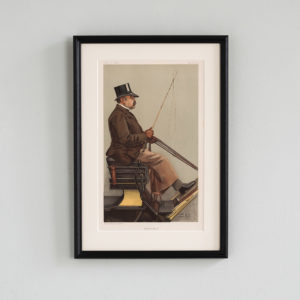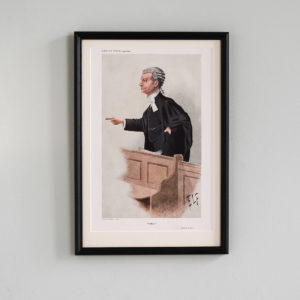462 items found
Page 4 of 5
-
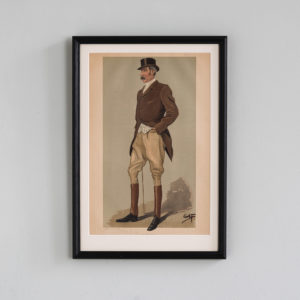
A hard rider,
£190A hard rider,
Framed Chromolithograph by SPY (Sir Leslie Ward) picturing 'Captain' David Longfield Beatty, infamous soldier and amateur sportsman of the late Victorian period. An Anglo-Irish horse dealer and trainer from County Wexford, Captain Beatty was considered a violent and unpleasant bully. After cuckolding a brother Officer in the 4th Hussars he was dismissed from his regiment although he continued to be referred to as 'Captain' - a rank he had never achieved and held only in an honorary capacity. His natural son, David Richard Beatty went on to become Admiral of the Fleet and the 1st Earl Beatty, Viscount Borodale and Baron Beatty of the North Sea and Brooksby sometimes described as 'Britain's last naval hero'.£190 -
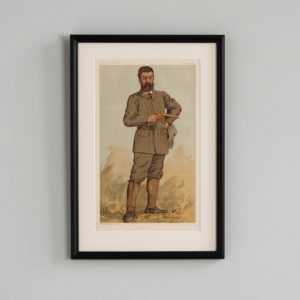
The Record Revolver Shot,
£190The Record Revolver Shot,
A framed chromolithograph by SPY (Sir Leslie Ward) picturing Mr Walter Winans, American marksman, hunter, horsebreeder, sculptor and painter. A twice Olympic shooting gold medalist, he also won the gold medal for sculpture at the Stockholm Arts Competition in 1912 for his equestrian bronze 'An American Trotter'.£190 -
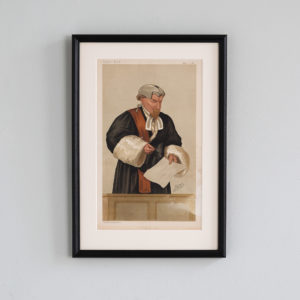
Stay, Please,
£190Stay, Please,
A framed chromolithograph picturing Mr Justice William Ventris Field, Baron Field of Wakenham. Queen's Council, later Queen's Bench, he oversaw the reorganisation of the court system following the Judicature Act of 1881 which established Judges Chambers in England and served (especially in the court of Chancery) to make trial without a jury the normal mode of trial, except in certain instances. In 1890, he retired from the bench and was raised to the peerage as Baron Field, of Wakenham in the County of Surrey, on 10 April 1890. He had been sworn of the Privy Council earlier the same year.£190 -
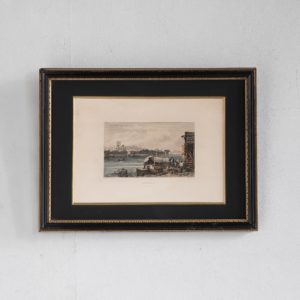
Westminster from Vauxhall
£190Westminster from Vauxhall
A hand-coloured engraving by George Cooke of a watercolour by Samuel Prout showing a view across the Thames from the Vauxhall shore towards Westminster Cathedral and the Palace of Westminster. Taken from Cooke's 'Views in London and its Vicinity'. In the immediate foreground we are presented with a scene outside a Lambeth boat-builders yard while barges and wherries crowd the river in the middle distance. On the Westminster shore we can see St John's Smith Square and beyond that the massy bulk of Westminster Abbey, later to sit in a somewhat diminished relation to Barry and Pugin's rebuilt Houses of Parliament of 1840-1876 Samuel Prout was a great favourite of John Ruskin who went as far as to comment in 1844, "Sometimes I tire of Turner, but never of Prout". Prout was noted for his paintings of great European cities and picturesque ruins and particularly for his ability to imbue his subjects with 'breadth and largeness'. George Cooke was leading English line-engraver of the 19th Century and commissioned eight of leading British landscape artists to create works, including this, for his 1826 collection of 'Views in London and its Vicinity'. This is a first edition of 1827. Interestingly the old Palace of Westminster, depicted here, would burn to the ground only seven years after this work was created.£190 -
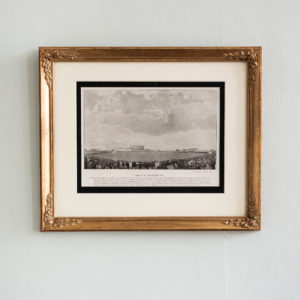
Cricket at Kennington Oval
£180Cricket at Kennington Oval
Engraved by Henry Winkles from the original study by William Tombleson. Originally published in the part-work series “Tombleson’s Views of the Thames and Medway” (London : 1833-1834).£180 -
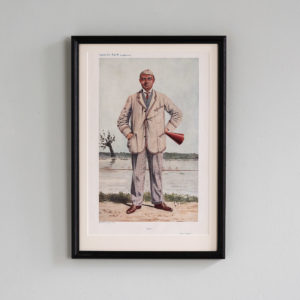
Bill,
£180Bill,
A framed chromolithograph by ELF picturing Robert Henry Foster, lawyer, author, poet, oarsmen and pioneering Romano-British archaeologist. His excavations at Roman Corbridge on Hadrian's Wall were seminal in the fledgling field of British archaeology. He wrote widely about Hadrian's Wall and the Roman presence in his native Northumberland. A keen oarsman, he rowed in the first boat of his college's Lady Margaret Boat Club and in the crew sent to Henley in 1888, winning both the Thames cup and Ladies plate. He later became joint secretary of the Thames Rowing Club in 1892. Starting out with a legal career in mind, he was called to the Bar in 1892, having been McMahon Law Student the year before. However, his writing soon took precedence, to be joined by his archaeological interests.£180 -
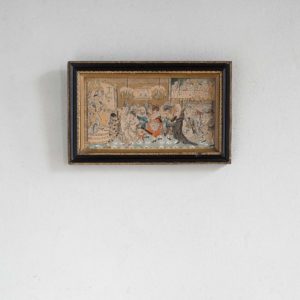
The Ball,
£180 -
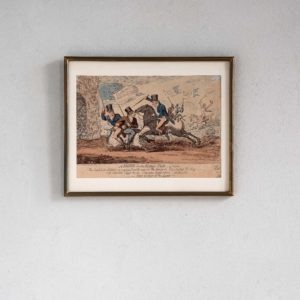
A Match for the King’s Plate,
£180A Match for the King’s Plate,
A hand coloured etching by George Cruikshank commenting on the contest for seat of Westminster. George Lamb and John Cam Hobhouse, 1st Baron Broughton are shown astride a lamb, Sir Francis Burdett, 5th Baronet, on a fine but injured charger and Henry 'Orator' Hunt straggles behind on an old carthorse representing the 'Father of Reform' Major John Cartwright. All five figures are shown racing for the winning post at the gate of His Majesty's Treasury with an implication that the contest is for one for both power and political patronage while the twin devils or radical reform and universal suffrage inadvertently 'steal a ride' on the Baronet's charger. The election of 1818 was the first to be staged after the end of the Napoleonic wars and was to become both a distillation of the latent class-conflicts bubbling over in the United Kingdom, and a fore-warning of the growth of militant radicalism that was to envenom and fracture British politics in the early parts of the 19th Century. Sir Francis Burdett was the Radical incumbent in Westminster and yet was firmly set against the new Radicalism which was beginning to colour the politics of the manufacturing districts of the North. This extreme and confident movement for universal manhood suffrage and political reform was by now associated with Henry Hunt, Major Cartwright and the writer and journalist William Cobbett. Caught in a cleft stick by his need both to mollify the prosperous and respectable Westminster electorate and yet maintain his own character as a tribune of the plebeians and Radical leader, Burdett was in a classic political double-bind. To the eye of the exiled Cobbett the Baronet was a placeman and an establishment 'traitor' but to his Tory opponents and the wavering freeholders and burgesses of Westminster he was beginning to appear a dangerous extremist. The suicide of Sir Samuel Romilly, the second member for Westminster, in November 1818 threw the situation wide open and the resulting by-election became something of a national sensation.£180 -
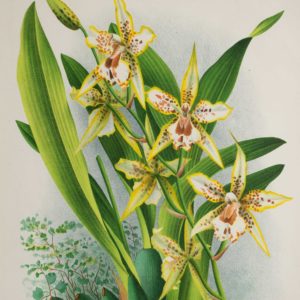
Linden Botanicals, Odontoglossum Duvivieranum,
£175 eachLinden Botanicals, Odontoglossum Duvivieranum,
L’Illustration Horticole, was a monthly horticultural review, founded in 1854 in Ghent, Belgium, by Ambroise Verschaffelt, a nurseryman who specialised in new plant introductions from South America. The lavish illustrations were produced by some of the very best botanical artists and lithographers – A. Goosens, P. De Pannemaeker and J. Goffart. The L’Illustration Horticole although founded by Jean Jules Linden (1817 – 1898) became a collaborative effort of many great horticulturists and field botanists of the day. Jean Linden in his own right was a renowned orchid grower and collector. Each monthly edition featured chromolithograph of botanical prints. Plants such as orchids, camellias, roses and leafy plants such as ferns and palm trees were represented. The magazine’s scope included pictures, descriptions, the history and culture of “the most remarkable plants,” new introductions, horticultural history, botanical expeditions, and accounts of the major expositions and of new works on botany and horticulture as well as garden descriptions and layouts.£175 each -
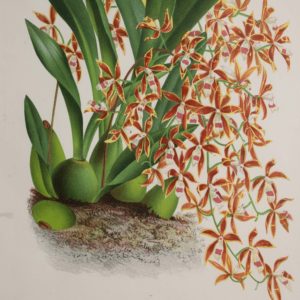
Linden Botanicals, Odontoglossum Constricutum,
£175 eachLinden Botanicals, Odontoglossum Constricutum,
L’Illustration Horticole, was a monthly horticultural review, founded in 1854 in Ghent, Belgium, by Ambroise Verschaffelt, a nurseryman who specialised in new plant introductions from South America. The lavish illustrations were produced by some of the very best botanical artists and lithographers – A. Goosens, P. De Pannemaeker and J. Goffart. The L’Illustration Horticole although founded by Jean Jules Linden (1817 – 1898) became a collaborative effort of many great horticulturists and field botanists of the day. Jean Linden in his own right was a renowned orchid grower and collector. Each monthly edition featured chromolithograph of botanical prints. Plants such as orchids, camellias, roses and leafy plants such as ferns and palm trees were represented. The magazine’s scope included pictures, descriptions, the history and culture of “the most remarkable plants,” new introductions, horticultural history, botanical expeditions, and accounts of the major expositions and of new works on botany and horticulture as well as garden descriptions and layouts.£175 each -
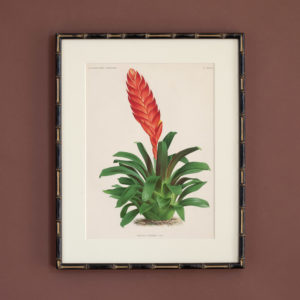
Linden Botanicals, Vriesea Fulgida,
£175 eachLinden Botanicals, Vriesea Fulgida,
L’Illustration Horticole, was a monthly horticultural review, founded in 1854 in Ghent, Belgium, by Ambroise Verschaffelt, a nurseryman who specialised in new plant introductions from South America. The lavish illustrations were produced by some of the very best botanical artists and lithographers – A. Goosens, P. De Pannemaeker and J. Goffart. The L’Illustration Horticole although founded by Jean Jules Linden (1817 – 1898) became a collaborative effort of many great horticulturists and field botanists of the day. Jean Linden in his own right was a renowned orchid grower and collector. Each monthly edition featured chromolithograph of botanical prints. Plants such as orchids, camellias, roses and leafy plants such as ferns and palm trees were represented. The magazine’s scope included pictures, descriptions, the history and culture of “the most remarkable plants,” new introductions, horticultural history, botanical expeditions, and accounts of the major expositions and of new works on botany and horticulture as well as garden descriptions and layouts.£175 each -
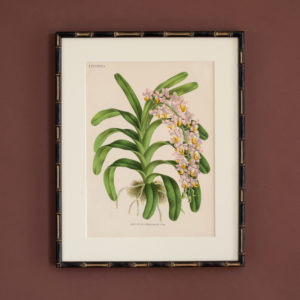
Linden Botanicals, Aerides Reichenbachi,
£175 eachLinden Botanicals, Aerides Reichenbachi,
L’Illustration Horticole, was a monthly horticultural review, founded in 1854 in Ghent, Belgium, by Ambroise Verschaffelt, a nurseryman who specialised in new plant introductions from South America. The lavish illustrations were produced by some of the very best botanical artists and lithographers – A. Goosens, P. De Pannemaeker and J. Goffart. The L’Illustration Horticole although founded by Jean Jules Linden (1817 – 1898) became a collaborative effort of many great horticulturists and field botanists of the day. Jean Linden in his own right was a renowned orchid grower and collector. Each monthly edition featured chromolithograph of botanical prints. Plants such as orchids, camellias, roses and leafy plants such as ferns and palm trees were represented. The magazine’s scope included pictures, descriptions, the history and culture of “the most remarkable plants,” new introductions, horticultural history, botanical expeditions, and accounts of the major expositions and of new works on botany and horticulture as well as garden descriptions and layouts.£175 each -
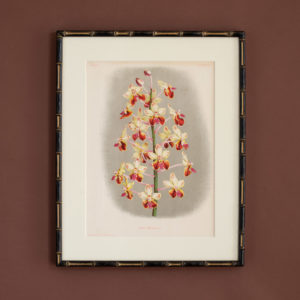
Linden Botanicals, Vanda Superba,
£175 eachLinden Botanicals, Vanda Superba,
L’Illustration Horticole, was a monthly horticultural review, founded in 1854 in Ghent, Belgium, by Ambroise Verschaffelt, a nurseryman who specialised in new plant introductions from South America. The lavish illustrations were produced by some of the very best botanical artists and lithographers – A. Goosens, P. De Pannemaeker and J. Goffart. The L’Illustration Horticole although founded by Jean Jules Linden (1817 – 1898) became a collaborative effort of many great horticulturists and field botanists of the day. Jean Linden in his own right was a renowned orchid grower and collector. Each monthly edition featured chromolithograph of botanical prints. Plants such as orchids, camellias, roses and leafy plants such as ferns and palm trees were represented. The magazine’s scope included pictures, descriptions, the history and culture of “the most remarkable plants,” new introductions, horticultural history, botanical expeditions, and accounts of the major expositions and of new works on botany and horticulture as well as garden descriptions and layouts.£175 each -
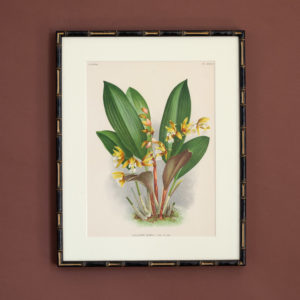
Linden Botanicals, Coelogyne Lurida,
£175 eachLinden Botanicals, Coelogyne Lurida,
L’Illustration Horticole, was a monthly horticultural review, founded in 1854 in Ghent, Belgium, by Ambroise Verschaffelt, a nurseryman who specialised in new plant introductions from South America. The lavish illustrations were produced by some of the very best botanical artists and lithographers – A. Goosens, P. De Pannemaeker and J. Goffart. The L’Illustration Horticole although founded by Jean Jules Linden (1817 – 1898) became a collaborative effort of many great horticulturists and field botanists of the day. Jean Linden in his own right was a renowned orchid grower and collector. Each monthly edition featured chromolithograph of botanical prints. Plants such as orchids, camellias, roses and leafy plants such as ferns and palm trees were represented. The magazine’s scope included pictures, descriptions, the history and culture of “the most remarkable plants,” new introductions, horticultural history, botanical expeditions, and accounts of the major expositions and of new works on botany and horticulture as well as garden descriptions and layouts.£175 each -
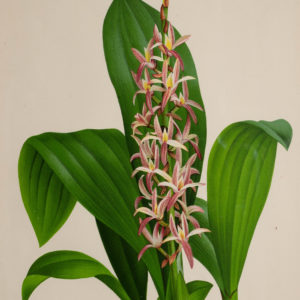
Linden Botanicals, Eria Striolata,
£175 eachLinden Botanicals, Eria Striolata,
L’Illustration Horticole, was a monthly horticultural review, founded in 1854 in Ghent, Belgium, by Ambroise Verschaffelt, a nurseryman who specialised in new plant introductions from South America. The lavish illustrations were produced by some of the very best botanical artists and lithographers – A. Goosens, P. De Pannemaeker and J. Goffart. The L’Illustration Horticole although founded by Jean Jules Linden (1817 – 1898) became a collaborative effort of many great horticulturists and field botanists of the day. Jean Linden in his own right was a renowned orchid grower and collector. Each monthly edition featured chromolithograph of botanical prints. Plants such as orchids, camellias, roses and leafy plants such as ferns and palm trees were represented. The magazine’s scope included pictures, descriptions, the history and culture of “the most remarkable plants,” new introductions, horticultural history, botanical expeditions, and accounts of the major expositions and of new works on botany and horticulture as well as garden descriptions and layouts.£175 each -
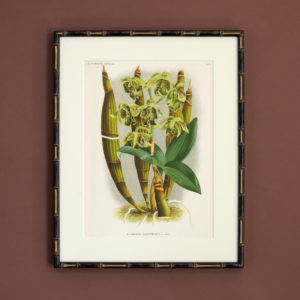
Linden Botanicals, Dendiobium Macrophyllum,
£175 eachLinden Botanicals, Dendiobium Macrophyllum,
L’Illustration Horticole, was a monthly horticultural review, founded in 1854 in Ghent, Belgium, by Ambroise Verschaffelt, a nurseryman who specialised in new plant introductions from South America. The lavish illustrations were produced by some of the very best botanical artists and lithographers – A. Goosens, P. De Pannemaeker and J. Goffart. The L’Illustration Horticole although founded by Jean Jules Linden (1817 – 1898) became a collaborative effort of many great horticulturists and field botanists of the day. Jean Linden in his own right was a renowned orchid grower and collector. Each monthly edition featured chromolithograph of botanical prints. Plants such as orchids, camellias, roses and leafy plants such as ferns and palm trees were represented. The magazine’s scope included pictures, descriptions, the history and culture of “the most remarkable plants,” new introductions, horticultural history, botanical expeditions, and accounts of the major expositions and of new works on botany and horticulture as well as garden descriptions and layouts.£175 each -
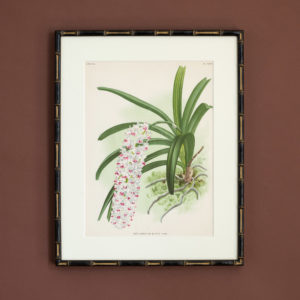
Linden Botanicals, Rhynchostylis Retusa,
£175 eachLinden Botanicals, Rhynchostylis Retusa,
L’Illustration Horticole, was a monthly horticultural review, founded in 1854 in Ghent, Belgium, by Ambroise Verschaffelt, a nurseryman who specialised in new plant introductions from South America. The lavish illustrations were produced by some of the very best botanical artists and lithographers – A. Goosens, P. De Pannemaeker and J. Goffart. The L’Illustration Horticole although founded by Jean Jules Linden (1817 – 1898) became a collaborative effort of many great horticulturists and field botanists of the day. Jean Linden in his own right was a renowned orchid grower and collector. Each monthly edition featured chromolithograph of botanical prints. Plants such as orchids, camellias, roses and leafy plants such as ferns and palm trees were represented. The magazine’s scope included pictures, descriptions, the history and culture of “the most remarkable plants,” new introductions, horticultural history, botanical expeditions, and accounts of the major expositions and of new works on botany and horticulture as well as garden descriptions and layouts.£175 each -
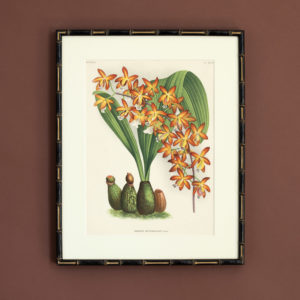
Linden Botanicals, Eriopsis Rutidobulbon,
£175 eachLinden Botanicals, Eriopsis Rutidobulbon,
L’Illustration Horticole, was a monthly horticultural review, founded in 1854 in Ghent, Belgium, by Ambroise Verschaffelt, a nurseryman who specialised in new plant introductions from South America. The lavish illustrations were produced by some of the very best botanical artists and lithographers – A. Goosens, P. De Pannemaeker and J. Goffart. The L’Illustration Horticole although founded by Jean Jules Linden (1817 – 1898) became a collaborative effort of many great horticulturists and field botanists of the day. Jean Linden in his own right was a renowned orchid grower and collector. Each monthly edition featured chromolithograph of botanical prints. Plants such as orchids, camellias, roses and leafy plants such as ferns and palm trees were represented. The magazine’s scope included pictures, descriptions, the history and culture of “the most remarkable plants,” new introductions, horticultural history, botanical expeditions, and accounts of the major expositions and of new works on botany and horticulture as well as garden descriptions and layouts.£175 each -
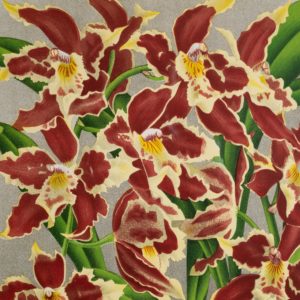
Linden Botanicals, Odontoglossum Crispum,
£175 eachLinden Botanicals, Odontoglossum Crispum,
L’Illustration Horticole, was a monthly horticultural review, founded in 1854 in Ghent, Belgium, by Ambroise Verschaffelt, a nurseryman who specialised in new plant introductions from South America. The lavish illustrations were produced by some of the very best botanical artists and lithographers – A. Goosens, P. De Pannemaeker and J. Goffart. The L’Illustration Horticole although founded by Jean Jules Linden (1817 – 1898) became a collaborative effort of many great horticulturists and field botanists of the day. Jean Linden in his own right was a renowned orchid grower and collector. Each monthly edition featured chromolithograph of botanical prints. Plants such as orchids, camellias, roses and leafy plants such as ferns and palm trees were represented. The magazine’s scope included pictures, descriptions, the history and culture of “the most remarkable plants,” new introductions, horticultural history, botanical expeditions, and accounts of the major expositions and of new works on botany and horticulture as well as garden descriptions and layouts.£175 each -
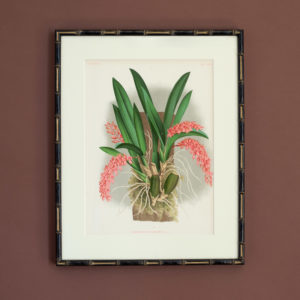
Linden Botanicals, Rodriguezia Bungerothi,
£175 eachLinden Botanicals, Rodriguezia Bungerothi,
L’Illustration Horticole, was a monthly horticultural review, founded in 1854 in Ghent, Belgium, by Ambroise Verschaffelt, a nurseryman who specialised in new plant introductions from South America. The lavish illustrations were produced by some of the very best botanical artists and lithographers – A. Goosens, P. De Pannemaeker and J. Goffart. The L’Illustration Horticole although founded by Jean Jules Linden (1817 – 1898) became a collaborative effort of many great horticulturists and field botanists of the day. Jean Linden in his own right was a renowned orchid grower and collector. Each monthly edition featured chromolithograph of botanical prints. Plants such as orchids, camellias, roses and leafy plants such as ferns and palm trees were represented. The magazine’s scope included pictures, descriptions, the history and culture of “the most remarkable plants,” new introductions, horticultural history, botanical expeditions, and accounts of the major expositions and of new works on botany and horticulture as well as garden descriptions and layouts.£175 each -
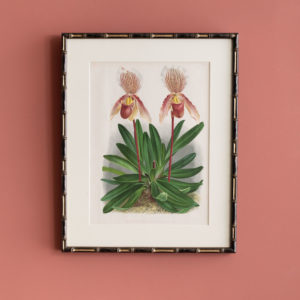
Linden Botanicals,
£175 eachLinden Botanicals,
L’Illustration Horticole, was a monthly horticultural review, founded in 1854 in Ghent, Belgium, by Ambroise Verschaffelt, a nurseryman who specialised in new plant introductions from South America. The lavish illustrations were produced by some of the very best botanical artists and lithographers – A. Goosens, P. De Pannemaeker and J. Goffart. The L’Illustration Horticole although founded by Jean Jules Linden (1817 – 1898) became a collaborative effort of many great horticulturists and field botanists of the day. Jean Linden in his own right was a renowned orchid grower and collector. Each monthly edition featured chromolithograph of botanical prints. Plants such as orchids, camellias, roses and leafy plants such as ferns and palm trees were represented. The magazine’s scope included pictures, descriptions, the history and culture of “the most remarkable plants,” new introductions, horticultural history, botanical expeditions, and accounts of the major expositions and of new works on botany and horticulture as well as garden descriptions and layouts.£175 each -
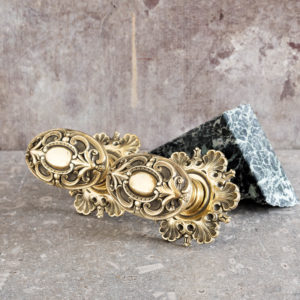
Two Victorian Rococo brass centre pulls
£175 eachTwo Victorian Rococo brass centre pulls
c.1860s, with central cabochon to each handle. Sold separately.£175 each -
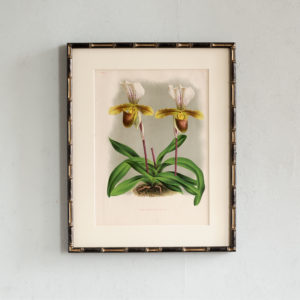
Linden Botanicals
£175 eachLinden Botanicals
L’Illustration Horticole, was a monthly horticultural review, founded in 1854 in Ghent, Belgium, by Ambroise Verschaffelt, a nurseryman who specialised in new plant introductions from South America. The lavish illustrations were produced by some of the very best botanical artists and lithographers – A. Goosens, P. De Pannemaeker and J. Goffart. The L’Illustration Horticole although founded by Jean Jules Linden (1817 – 1898) became a collaborative effort of many great horticulturists and field botanists of the day. Jean Linden in his own right was a renowned orchid grower and collector. Each monthly edition featured chromolithograph of botanical prints. Plants such as orchids, camellias, roses and leafy plants such as ferns and palm trees were represented. The magazine’s scope included pictures, descriptions, the history and culture of “the most remarkable plants,” new introductions, horticultural history, botanical expeditions, and accounts of the major expositions and of new works on botany and horticulture as well as garden descriptions and layouts.£175 each -
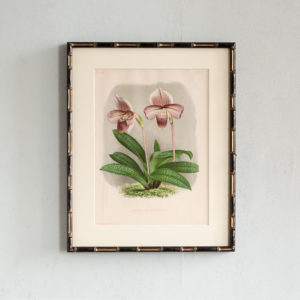
Linden Botanicals
£175 eachLinden Botanicals
L’Illustration Horticole, was a monthly horticultural review, founded in 1854 in Ghent, Belgium, by Ambroise Verschaffelt, a nurseryman who specialised in new plant introductions from South America. The lavish illustrations were produced by some of the very best botanical artists and lithographers – A. Goosens, P. De Pannemaeker and J. Goffart. The L’Illustration Horticole although founded by Jean Jules Linden (1817 – 1898) became a collaborative effort of many great horticulturists and field botanists of the day. Jean Linden in his own right was a renowned orchid grower and collector. Each monthly edition featured chromolithograph of botanical prints. Plants such as orchids, camellias, roses and leafy plants such as ferns and palm trees were represented. The magazine’s scope included pictures, descriptions, the history and culture of “the most remarkable plants,” new introductions, horticultural history, botanical expeditions, and accounts of the major expositions and of new works on botany and horticulture as well as garden descriptions and layouts.£175 each -
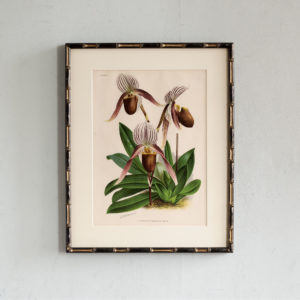
Linden Botanicals
£175 eachLinden Botanicals
L’Illustration Horticole, was a monthly horticultural review, founded in 1854 in Ghent, Belgium, by Ambroise Verschaffelt, a nurseryman who specialised in new plant introductions from South America. The lavish illustrations were produced by some of the very best botanical artists and lithographers – A. Goosens, P. De Pannemaeker and J. Goffart. The L’Illustration Horticole although founded by Jean Jules Linden (1817 – 1898) became a collaborative effort of many great horticulturists and field botanists of the day. Jean Linden in his own right was a renowned orchid grower and collector. Each monthly edition featured chromolithograph of botanical prints. Plants such as orchids, camellias, roses and leafy plants such as ferns and palm trees were represented. The magazine’s scope included pictures, descriptions, the history and culture of “the most remarkable plants,” new introductions, horticultural history, botanical expeditions, and accounts of the major expositions and of new works on botany and horticulture as well as garden descriptions and layouts.£175 each -
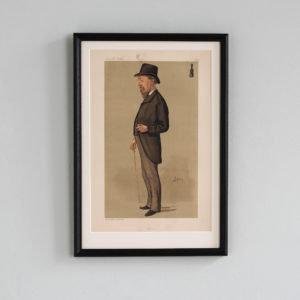
Chess,
£175Chess,
Framed chromolithograph by APE (Carlo Pellegrini) picturing Joseph Henry Blackburne, British chess master nicknamed 'The Black Death'. Despite only taking up the game at the age of 17 Blackburn became a world champion many times over and an icon of 'Romantic Chess'.£175 -
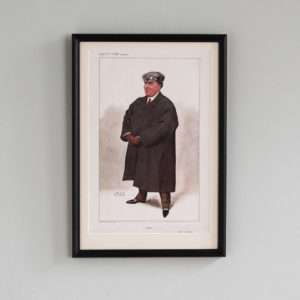
Steam
£175Steam
A framed chromolithograph by SPY (Leslie Ward) depicting Frederic Abernethy Coleman, writer, journalist, military historian & motoring pioneer. He popularised the White Steam Car in England and was a fierce opponent of the 'petrol car brigade' preferring and championing steam powered motorcars. Steam powered cars had the ascendancy in early British motoring, particularly in hill-climbs until they were banned from competition by advocates of the petrol engine,£175 -
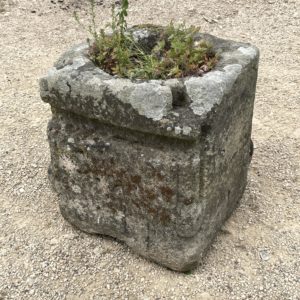
An old sandstone planter
£170An old sandstone planter
adapted from a post footing block, with a carved channel to the front and stopped ovolo mould to all four edges; attractively worn and weathered,£170 -
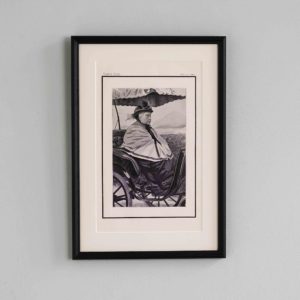
Her Majesty the Queen Empress,
£170 -
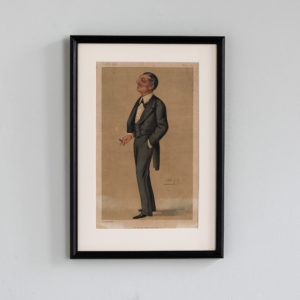
In His Military Capacity,
£170In His Military Capacity,
Framed Chromolithograph by SPY (Leslie Ward) depicting Mr Montagu Williams QC, teacher, British Army officer, actor, playwright, barrister and magistrate. His succesful defence of Mr John Young in his manslaughter trial, after the death of an opponent in the boxing ring, established a legal precedent around the sport.£170 -
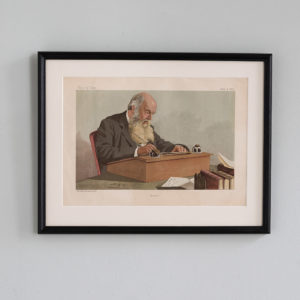
Balliol,
£170Balliol,
Framed Chromolithograph by Spy (Leslie Ward) depicting Edward Caird FRSA FBA. Scottish philosopher on the latter part of the 19th century, Caird is considered one of the fathers of the British Idealist school, a philosophical movement that was influential in Britain from the mid-nineteenth century until its overthrow by the Analytic Philosophy associated with Bertrand Russell. He served as Master of Balliol college until 1907.£170 -
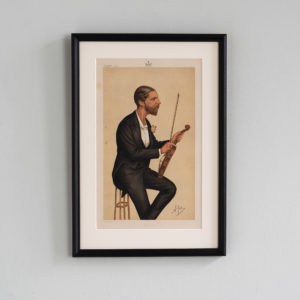
First Violin,
£170First Violin,
Framed Chromolithograph by Spy (Leslie Ward) picturing HRH The Duke of Edinburgh, Alfred Ernest Albert, later Duke of Saxe Coburg and Gotha. The second son of Victoria and Albert he joined the Royal Navy at 14, he rose through the ranks to attain the position of Admiral of the Fleet by 1893 having served as Cadet, Lieutenant and Captain of HMS Galatea which he commanded in the Pacific Ocean. He commanded both the Channel fleet and, later, the Mediterranean Fleet from his flagship HMS Alexandra. The Duke survived an assassination attempt while visiting Sydney Australia and went on to marry a Grand Duchess of Russia. Alfred was a musical enthusiast and took a leading role in the establishment of the the Royal College of Music in 1882. He was a particularly keen violinist although his playing was not of the first quality. After a dinner party given by one of his brothers where he was persuaded to play Sir Henry Ponsonby would write: 'Fiddle out of tune and noise abominable'£170 -
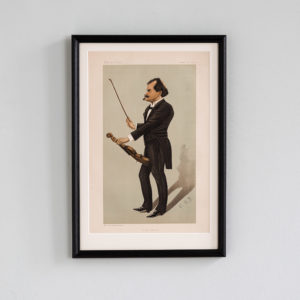
Eduard Strauss,
£170Eduard Strauss,
Framed Chromolithograph signed EBN depicting the Austrian composer and conductor Eduard Strauss, brother of Johann II and Josef Strauss.£170 -
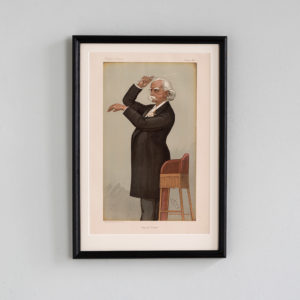
Crystal Palace,
£170Crystal Palace,
Framed Chromolithograph by Spy (Leslie Ward) picturing Sir August Friedrich Manns, German born British Composer and a key figure in the musical life of the Crystal Palace where he conducted a 90 piece orchestra.£170 -
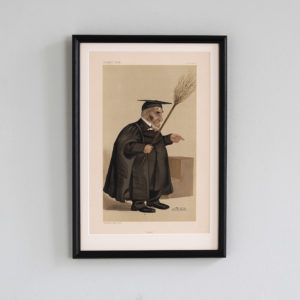
Jimmy,
£170Jimmy,
Framed chromolithograph picturing the Revd. James Leigh Jones, English clergyman and schoolmaster at Eton College. Teacher of Swinburne and the Duke of Argyll. Famed for his application of the birching rod and his regular flogging of his pupils.£170 -
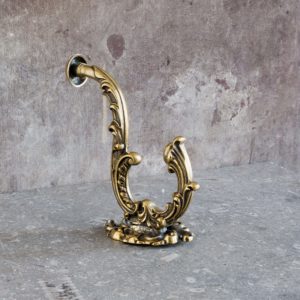
William IV gilt-brass coat hook
£160 -
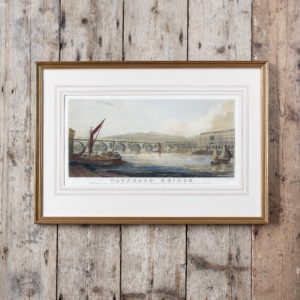
Waterloo Bridge,
£150Waterloo Bridge,
Hand colured and engraved, framed and mounted print depicting John Rennie's Waterloo Bridge by the artist and engraver John Shury after a painting by W.G. Moss.£150 -
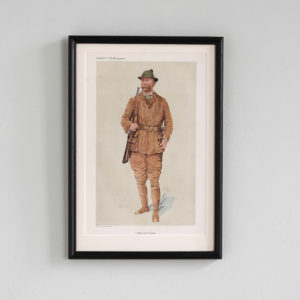
Tracks and Triggers,
£150Tracks and Triggers,
A Framed chromolithograph by WHO picturing Mr Walter Winans, American marksman, hunter and artist. Author The Art of Revolver Shooting, Winans owned hunting and shooting rights to 250,000 acres in the Scottish Highlands across Glen Strathfarrar, Glen Cannich and Glen Affric. In 1884 he attempted to prosecute a Scotsman, Muirdoch Macrae, for grazing a lamb on the ancestral lands of Clan McCrae but owned in law by Winans. The failure of Winans' prosecution established the right to roam which was a key element in opening British parklands to the public.£150 -
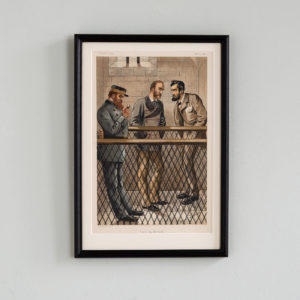
Force No Remedy
£150Force No Remedy
A framed chromolithograph by Harry Furniss picturing a prison warder, Charles Stewart Parnell and John Dillon pictured on remand in Kilmainham Gaol, Dublin. Parnell and Dillon were united in opposition to the Irish Land Act of 1881 which aimed to resolve landlord tenant relations in late 19th Century Ireland and neutralise the militancy of the Irish Land League. Accused of "sabotaging the Land Act", the pair were arrested on the 12th of October 1881 for their role in the declaration and propagation of the No Rent Manifesto, a radical proposal by the Land League calling for a campaign of passive resistance by the small tenant farmers of Ireland and the withholding of rent to landlords.£150 -
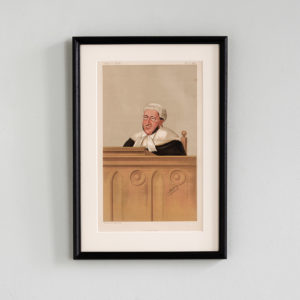
The New Judge
£150The New Judge
A framed chromolithograph by SPY (Sir Leslie Ward) picturing the Hon. Sir Arthur Charles who presided over the first trial of Oscar Wilde for sodomy and gross indecency in which the Jury failed to agree a verdict.£150 -
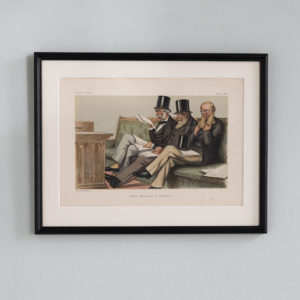
Birth, Behaviour and Business,
£145Birth, Behaviour and Business,
Framed Chromolithograph by T (Theobald Chartran) showing Her Majesty's loyal opposition. The front back consists of three survivors of Lord Salisbury's collapsed administration. Lord John Manners, once Postmaster General and later 7th Duke of Rutland, Sir Stafford Northcote, former Chancellor of the Exchequer and Richard Assheton Cross, former Home Secretary. All three were seen as emblematic of the lethargy and inertia of the Conservative party of the period.£145 -
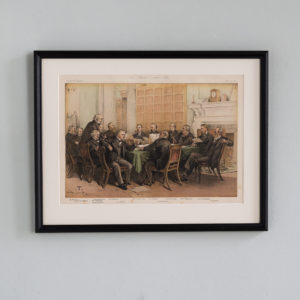
The Cabinet Council, 1883,
£145The Cabinet Council, 1883,
Framed Chromolithograph showing Gladstone's 1883 Liberal Cabinet. The second Gladstone administration was responsible for, among other things, the introduction of compulsory elementary education up to the age of 14 and the Married Woman's Property Act which returned to women the legal ability to own property in their own right. Depicted alongside the Prime Minister are his 13 cabinet colleagues including the MP for Birmingham Joseph Chamberlain, The 8th Duke of Devonshire, the 15th Earl of Derby and Sir William Vernon Harcourt.£145 -
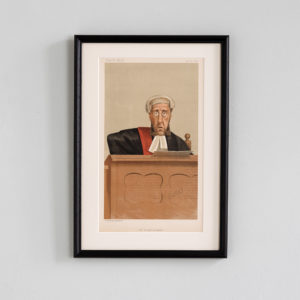
2nd Commissioner
£1452nd Commissioner
A framed chromolithograph by SPY (Sir Leslie Ward) picturing The Hon. Sir John Charles Frederick Sigismund Day a High Court Judge and art collector. One of the first Roman Catholic judges to be appointed to the English bench since the Reformation, he was called to the bench in 1882. Well known for sentencing criminals to lashes, in his latter years, he would sometimes listen intently to cases with his eyes closed, opening an eye suddenly if something significant were said, a mannerism which was jokingly referred to as "the peep of Day". He sat on the Parnell Commission, a judicial inquiry into allegations of crimes by Irish parliamentarian Charles Stewart Parnell which resulted in his acquittal and vindication. At the time it was said that it was on his insistence that Richard Pigott was put into the witness box and his forged letters, implicating Parnell in the Pheonix Park murders of 1882 exposed as fraudulent. He retired from the High Court of Justice in 1901, when he was granted an annuity of £3,500. In March the following year he was appointed to the Privy council. His portrait hangs in the Royal Courts of Justice.£145 -
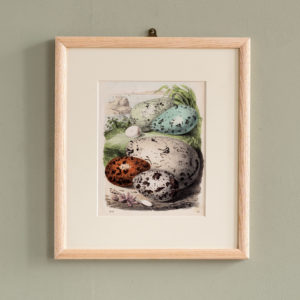
Nineteenth century, Bird-Egg lithographs,
£140Nineteenth century, Bird-Egg lithographs,
Carl Hoffmann (fl. ca. 1833-42) was a printer and publisher in Stuttgart£140 -
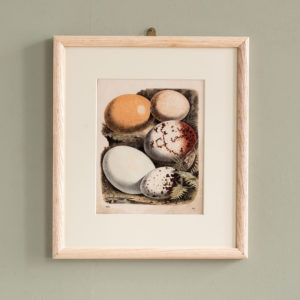
Nineteenth century, Bird-Egg lithographs,
£140Nineteenth century, Bird-Egg lithographs,
Carl Hoffmann (fl. ca. 1833-42) was a printer and publisher in Stuttgart£140 -
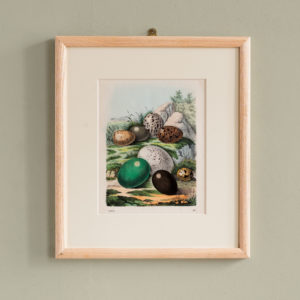
Nineteenth century, Bird-Egg lithographs,
£140Nineteenth century, Bird-Egg lithographs,
Carl Hoffmann (fl. ca. 1833-42) was a printer and publisher in Stuttgart£140 -
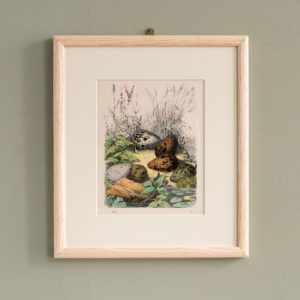
Nineteenth century, Bird-Egg lithographs,
£140Nineteenth century, Bird-Egg lithographs,
Carl Hoffmann (fl. ca. 1833-42) was a printer and publisher in Stuttgart£140 -
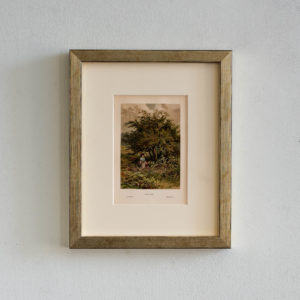
Nineteenth century arboreal prints,
£140 eachNineteenth century arboreal prints,
European trees published in London c1880. Mounted in cream framed in pale gold. 'Hawthorn'£140 each -
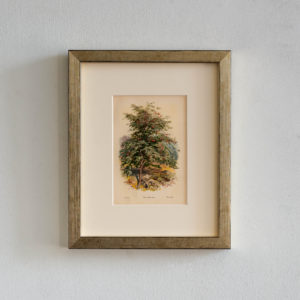
Nineteenth century arboreal prints,
£140 eachNineteenth century arboreal prints,
European trees published c1880. Mounted in cream framed in pale gold. 'Mountain Ash'£140 each -
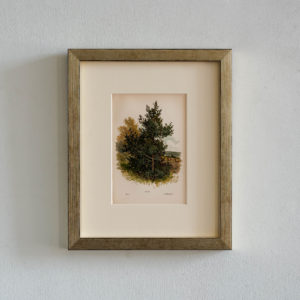
Nineteenth century arboreal prints,
£140 eachNineteenth century arboreal prints,
European trees published c1880. Mounted in cream framed in pale gold. 'Holly'.£140 each -
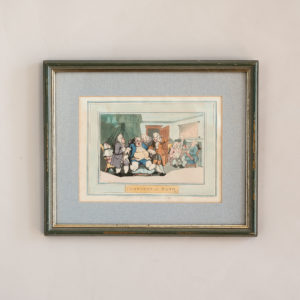
The Comforts of Bath, published 1858
£140 eachThe Comforts of Bath, published 1858
The Comforts of Bath is a series of 12 etchings by Thomas Rowlandson. Each etching is accompanied by verse extracts from Christopher Anstey’s 'New Bath Guide'£140 each -
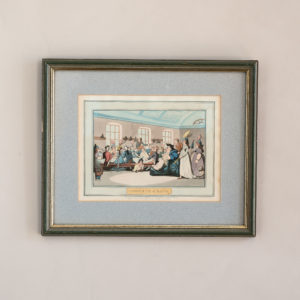
The Comforts of Bath, published 1858
£140 eachThe Comforts of Bath, published 1858
The Comforts of Bath is a series of 12 etchings by Thomas Rowlandson. Each etching is accompanied by verse extracts from Christopher Anstey’s 'New Bath Guide'£140 each -
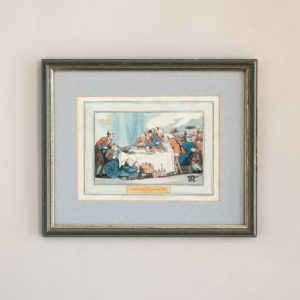
The Comforts of Bath, published 1858
£140 eachThe Comforts of Bath, published 1858
The Comforts of Bath is a series of 12 etchings by Thomas Rowlandson. Each etching is accompanied by verse extracts from Christopher Anstey’s 'New Bath Guide'£140 each -
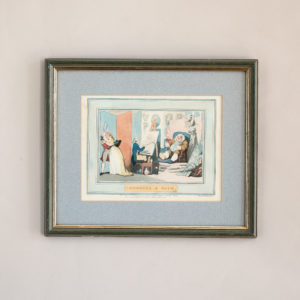
The Comforts of Bath, published 1858
£140 eachThe Comforts of Bath, published 1858
The Comforts of Bath is a series of 12 etchings by Thomas Rowlandson. Each etching is accompanied by verse extracts from Christopher Anstey’s 'New Bath Guide'£140 each -
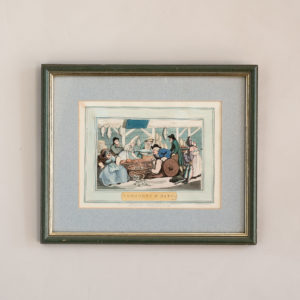
The Comforts of Bath, published 1858
£140 eachThe Comforts of Bath, published 1858
The Comforts of Bath is a series of 12 etchings by Thomas Rowlandson. Each etching is accompanied by verse extracts from Christopher Anstey’s 'New Bath Guide'£140 each -
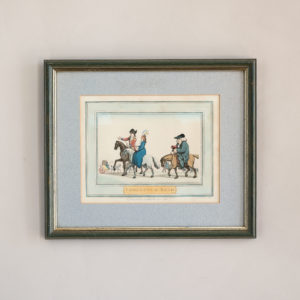
The Comforts of Bath, published 1858
£140 eachThe Comforts of Bath, published 1858
The Comforts of Bath is a series of 12 etchings by Thomas Rowlandson. Each etching is accompanied by verse extracts from Christopher Anstey’s 'New Bath Guide'£140 each -
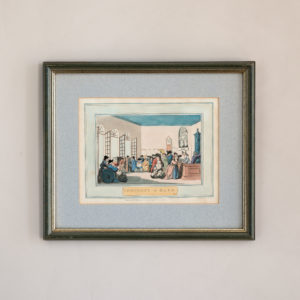
The Comforts of Bath, published 1858
£140 eachThe Comforts of Bath, published 1858
The Comforts of Bath is a series of 12 etchings by Thomas Rowlandson. Each etching is accompanied by verse extracts from Christopher Anstey’s 'New Bath Guide'£140 each -
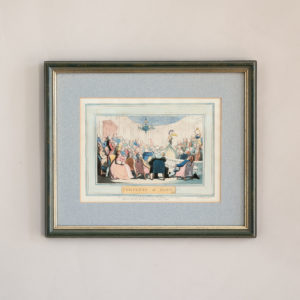
The Comforts of Bath, published 1858
£140 eachThe Comforts of Bath, published 1858
The Comforts of Bath is a series of 12 etchings by Thomas Rowlandson. Each etching is accompanied by verse extracts from Christopher Anstey’s 'New Bath Guide'£140 each -
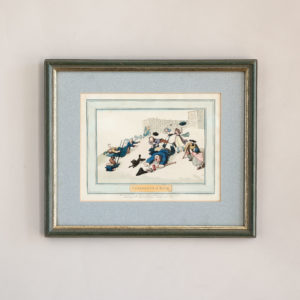
The Comforts of Bath, published 1858
£140 eachThe Comforts of Bath, published 1858
The Comforts of Bath is a series of 12 etchings by Thomas Rowlandson. Each etching is accompanied by verse extracts from Christopher Anstey’s 'New Bath Guide'£140 each -

19th Century English School Botanical Studies, Sandwort,
£120 each -
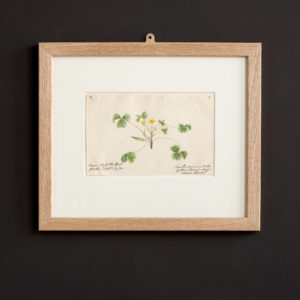
19th Century English School Botanical Studies, Wood Sorrel,
£120 each -
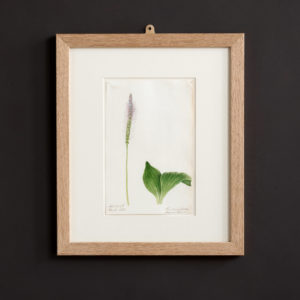
19th Century English School Botanical Studies, Hoary Plantain,
£120 each -
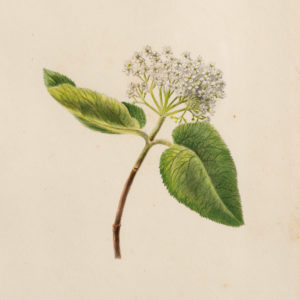
19th Century English School Botanical Studies, Wayfaring Tree,
£120 each -
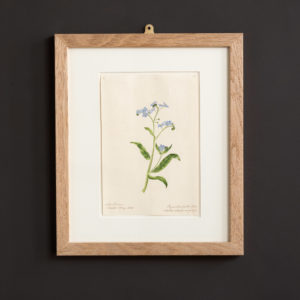
19th Century English School Botanical Studies, Water Scorpion Grass,
£120 each -
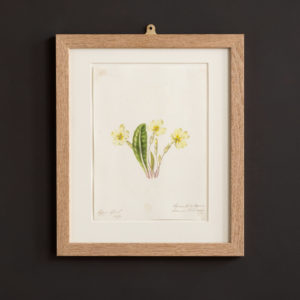
19th Century English School Botanical Studies, Common Primrose,
£120 each -
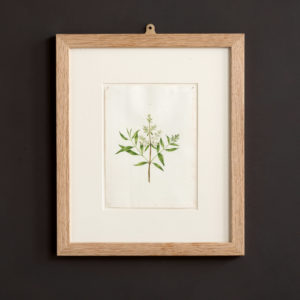
19th Century English School Botanical Studies,
£120 each -
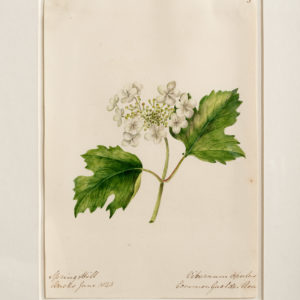
19th Century English School Botanical Studies, Common Guelder Rose,
£120 each -
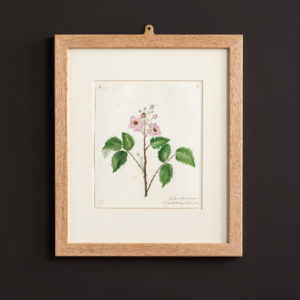
19th Century English School Botanical Studies, Blackberry Bramble,
£120 each -
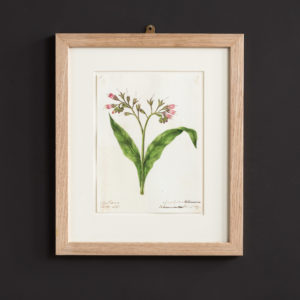
19th Century English School Botanical Studies, Comfrey,
£120 each -
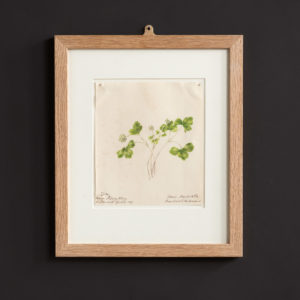
19th Century English School Botanical Studies, Moschatel,
£120 each -
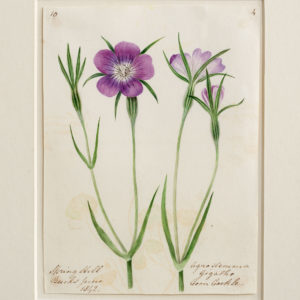
19th Century English School Botanical Studies, Corncockle,
£120 each -

19th Century English School Botanical Studies, Curled Dock,
£120 each -
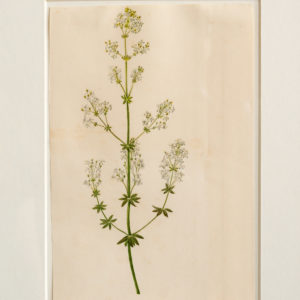
19th Century English School Botanical Studies,
£120 each -
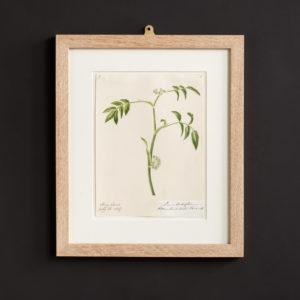
19th Century English School Botanical Studies, Water Parsnip,
£120 each -
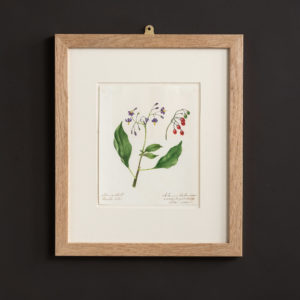
19th Century English School Botanical Studies, Woody Nightshade Bittersweet,
£120 each -
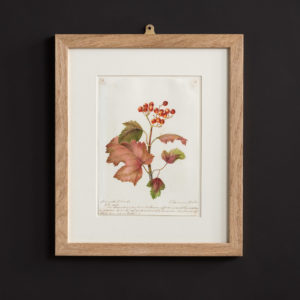
19th Century English School Botanical Studies, Viburnum Opulus,
£120 each -
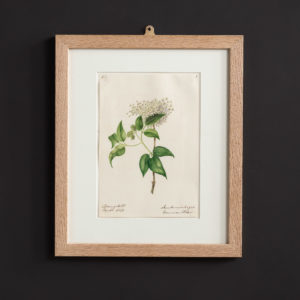
19th Century English School Botanical Studies, Common Elder,
£120 each -
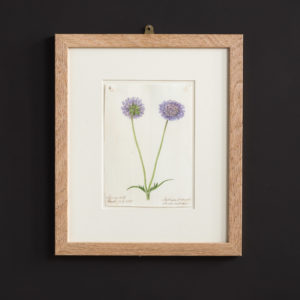
19th Century English School Botanical Studies, Field Scabious,
£120 each -
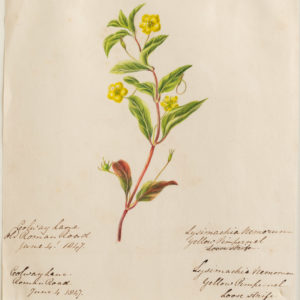
19th Century English School Botanical Studies, Yellow Pimpernel,
£120 each -
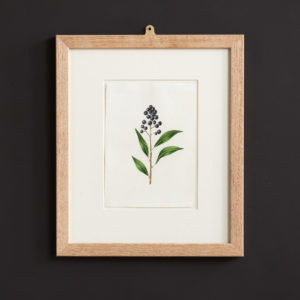
19th Century English School Botanical Studies,
£120 each -
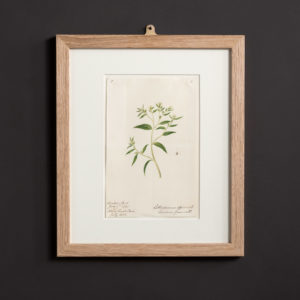
19th Century English School Botanical Studies, Common Gromwell,
£120 each -
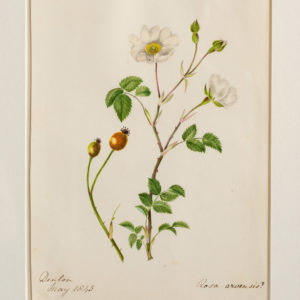
19th Century English School Botanical Studies, Rosa Arvensis,
£120 each -
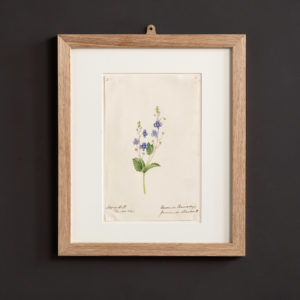
19th Century English School Botanical Studies, Germander Speedwell,
£120 each -
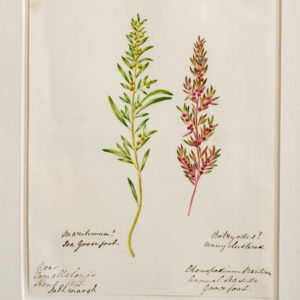
19th Century English School Botanical Studies, Seaside Goosefoot,
£120 each -
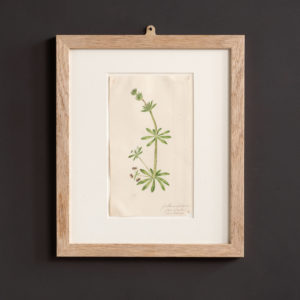
19th Century English School Botanical Studies, Goose Grass,
£120 each -
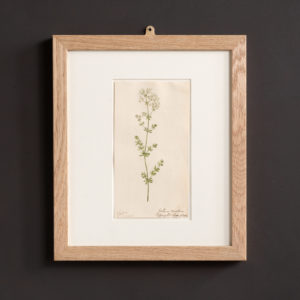
19th Century English School Botanical Studies, Upright Bedstraw,
£120 each -
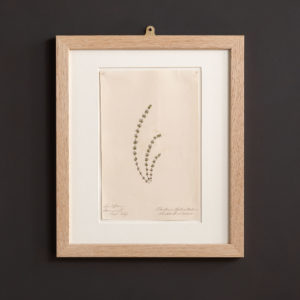
19th Century English School Botanical Studies, Knotweed,
£120 each -
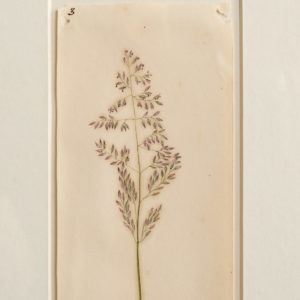
19th Century English School Botanical Studies, Meadow Soft Grass,
£120 each -
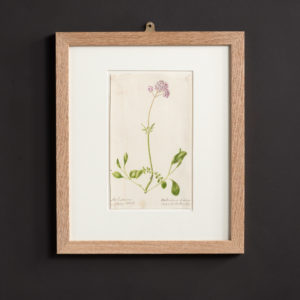
19th Century English School Botanical Studies, Marsh Valerian,
£120 each -
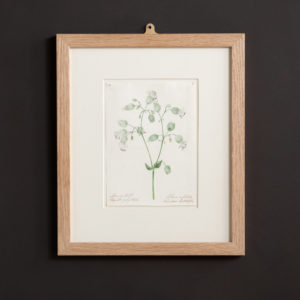
19th Century English School Botanical Studies, Bladder Catchfly,
£120 each -
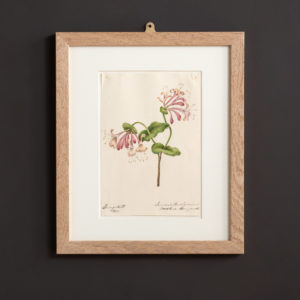
19th Century English School Botanical Studies, Woodbine Honeysuckle,
£120 each -
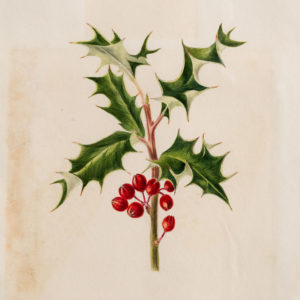
19th Century English School Botanical Studies, Common Holly,
£120 each -
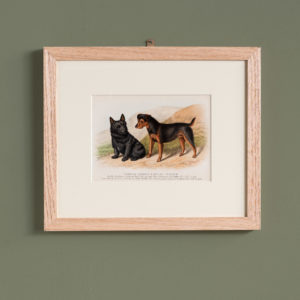
British Dogs 1882 – Scotch Terrier & Welsh Terrier,
£120 each -
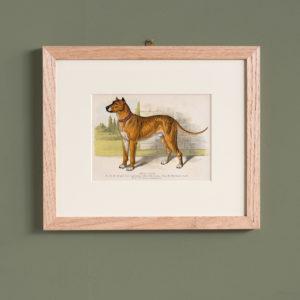
British Dogs 1882 – Great Dane
£120 each -
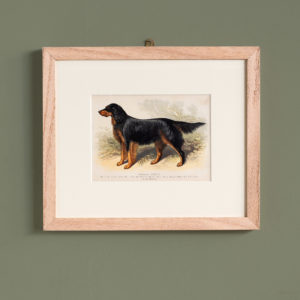
British Dogs 1882 – Gordon Setter,
£120 each -
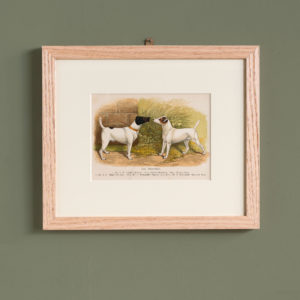
British Dogs 1882 – Fox Terriers,
£120 each -
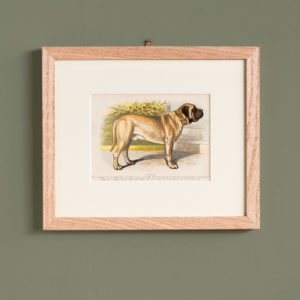
British Dogs 1882 – Mastiff,
£120 each -
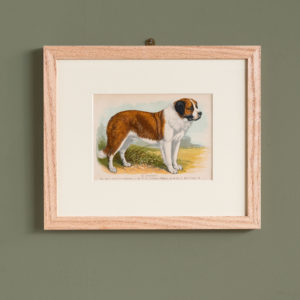
British Dogs 1882 – St. Bernard,
£120 each
Featured Items
-
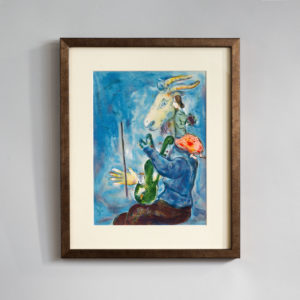
Printemps by Marc Chagall, Verve Vol. 1 / No. 3.
£800Printemps by Marc Chagall, Verve Vol. 1 / No. 3.
The Verve Review was a purposefully luxurious. It ran from 1937 to 1960, but with only 38 editions available, due to the high degree of design and editorial work dedicated to each issue. Each edition contained unique lithographic prints, commissioned by the editor, and each cover a double-page lithograph elaborated by one of the artists contained within. It was the brainchild of its editor Stratis Eleftheriades, a Greek National who moved to Paris in the early thirties to take part in the growing Modernist movement, writing under the name of Teriade.£800 -
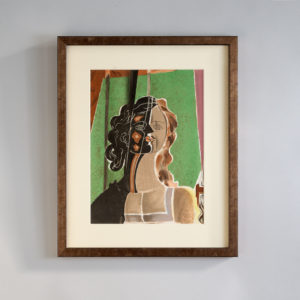
Figure by Georges Braque, Verve Vol 2 / No. 5-6.
£800Figure by Georges Braque, Verve Vol 2 / No. 5-6.
The Verve Review was a purposefully luxurious. It ran from 1937 to 1960, but with only 38 editions available, due to the high degree of design and editorial work dedicated to each issue. Each edition contained unique lithographic prints, commissioned by the editor, and each cover a double-page lithograph elaborated by one of the artists contained within. It was the brainchild of its editor Stratis Eleftheriades, a Greek National who moved to Paris in the early thirties to take part in the growing Modernist movement, writing under the name of Teriade.£800 -
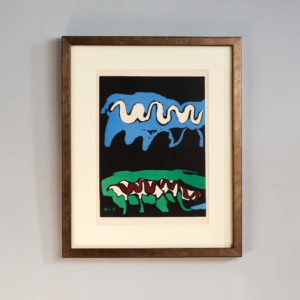
The Four Elements, Earth by Francisco Bores, Verve Vol. 1 / No. 1.
£600The Four Elements, Earth by Francisco Bores, Verve Vol. 1 / No. 1.
The Verve Review was a purposefully luxurious. It ran from 1937 to 1960, but with only 38 editions available, due to the high degree of design and editorial work dedicated to each issue. Each edition contained unique lithographic prints, commissioned by the editor, and each cover a double-page lithograph elaborated by one of the artists contained within. It was the brainchild of its editor Stratis Eleftheriades, a Greek National who moved to Paris in the early thirties to take part in the growing Modernist movement, writing under the name of Teriade.£600 -
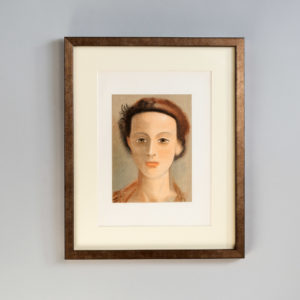
Portrait by Andre Derain, Verve Vol 2 / No. 5-6.
£800Portrait by Andre Derain, Verve Vol 2 / No. 5-6.
The Verve Review was a purposefully luxurious. It ran from 1937 to 1960, but with only 38 editions available, due to the high degree of design and editorial work dedicated to each issue. Each edition contained unique lithographic prints, commissioned by the editor, and each cover a double-page lithograph elaborated by one of the artists contained within. It was the brainchild of its editor Stratis Eleftheriades, a Greek National who moved to Paris in the early thirties to take part in the growing Modernist movement, writing under the name of Teriade.£800

